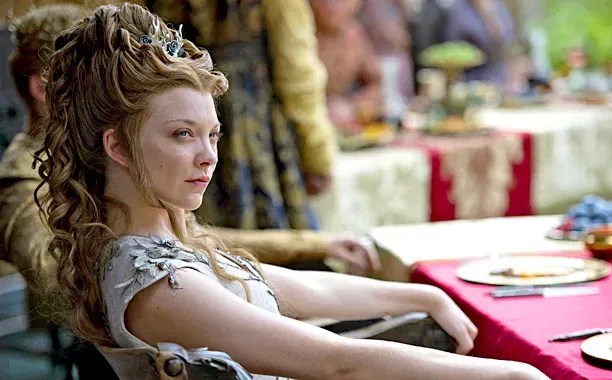Follow us on Google News
Get the latest updates directly in your Google News feed
Known for her role as the cunning Margaery Tyrell on HBO’sGame of Thrones,Natalie Dormer has never shied away from speaking her mind. And the actress did not hesitate to make some bold suggestions when it came to gender equality in the Emmy-winning series.

In a 2014 interview with Daily Beast, the actress discussed the disparities in how the show represented male and female bodies, suggesting that there should also be male nudity in the show. However, the showrunners couldn’t fulfill her suggestion.
Natalie Dormer Called For More Male Nudity onGame of Thrones
The popular HBO seriesGame of Throneshas often been hailed as one of the greatest shows of all time. However, it also garnered a reputation for its heavy emphasis on female nudity, frequently featuring its female characters in such scenes.
In contrast, the show’s male stars were largely spared from similar exposure. In an interview withThe Daily Beast,Natalie Dormer, who played Margaery Tyrell, voiced her strong support for gender equality in Hollywood and within the Emmy-winning series.

Dormer pointed out that while television has made significant strides in representing three-dimensional women, there is still room for improvement, particularly when it comes to balancing the portrayal of male and female nudity on screen.
“I don’t see what the problem is”: Natalie Dormer Doesn’t Agree With Chris Pratt Over ‘Women Objectification’ After Game of Thrones Star Defended Series as Naturalistic
The actress recalled moments when the show featured male actors likeAlfie Allenand Richard Madden nude, noting that their scenes were far less explicit than those featuring female actors.
During the first season Alfie [Allen, who plays Theon Greyjoy] Richard [Madden, who plays Robb Stark], and several of the men got naked—although not all the way.

Reflecting on the same, Dormer said,“I suppose it’s just the rules of broadcast television, isn’t it?”However, she still suggested that a show likeGame of Thronesshould have been more equal in its portrayal of nudity on-screen.
Natalie Dormer Applauded Hollywood for Evolving Gender Roles
During her interview with The Daily Beast, Dormer also reflected on the evolving nature of gender roles in the film industry. The actress appealed for a shift away from superficial“girl power”slogans towards a point where gender does not influence the evaluation of characters or stories.
What we’re aiming for in the industry is not to go, “Girl power! Wave the flag!” We want to get to a place where the gender is irrelevant, because then it’s about the personality, and about the story.

And she also noted the progress the film industry has made in such regards, with films likeThe Hunger Games: Mockingjay – Part 1andInterstellar. She noted,
What I love about Mockingjay–Part 1 is that President Coin or Cressida could have easily been played by a man, and if you look at Interstellar, the Anne Hathaway or Jessica Chastain roles would have been men years ago.

Dormer expressed satisfaction with how cinema is increasingly reflecting complex female characters while emphasizing that her commitment to gender equality is centered on achieving fair and equal representation.
“If that’s what you want, don’t watch Game of Thrones”: Natalie Dormer Doesn’t Believe the Biggest HBO Phenomenon is for Casual Fans Who Want Escapism Despite its Fantasy Genre
Game of Thronesis available to watch on Max.
Laxmi Rajput
Senior Writer
Articles Published :3447
Laxmi Rajput is a Senior Writer at FandomWire, with over 3,300 articles published covering film, TV, and pop culture. With a degree in Broadcast Journalism and over three years of experience in content writing, she pivoted to entertainment journalism because let’s be honest, superheroes, sitcoms, and Netflix binges are way more fun. Laxmi frequently covers Marvel, Harry Potter, Star Wars, and popular TV shows, offering both fan-first enthusiasm and thoughtful analysis. Her work often dives into Marvel theories, revisits the genius of The Big Bang Theory, or unpacks the Netflix phenomenon of Stranger Things.